MercoPress. South Atlantic News Agency
Economy
-
Thursday, July 1st 2021 - 09:30 UTC
Soybean rise to US $ 532 a ton in Chicago

The price of soybeans sprang back to above US $ 500 in the Chicago market Wednesday after a US $ 33.2 rise fueled by a new report on stocks and planting from the Department of Agriculture of the United States (USDA).
-
Thursday, July 1st 2021 - 09:00 UTC
Brazilian industry and unions request suspension of Mercosur talks on reducing the Common External Tariff
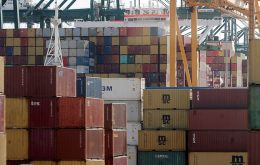
The Brazilian Confederation of Industry, CNI and the IndustriALL-Brasil (which represents industry unions) have officially requested that in the next Mercosur meeting, scheduled for early this month, Brazilian representatives withdraw the proposal for a reduction of block trade tariffs with other countries. However, both institutions also backed the current flexibilization of current trade talks with third countries, such as South Korea.
-
Wednesday, June 30th 2021 - 09:23 UTC
Unemployment crosses double-digit psychological threshold in Uruguay
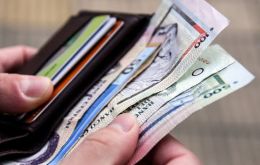
Uruguay's unemployment rate rose from 9.7% in April to 10.2% at the end of May, which marked a return of the index to double-digit figures, according to a monthly report released Tuesday by the National Institute of Statistics (INE).
-
Wednesday, June 30th 2021 - 09:13 UTC
Floods and droughts mean yearly losses worth US $ 1 billion for Argentina, says World Bank
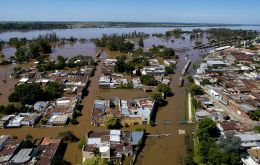
A new report titled “Impact of Climate Crisis on Poverty and the Argentine macroeconomy” points out the serious consequences of the impact of climate change on the Argentine economy, mainly due to losses caused by floods and droughts, the World Bank announced Tuesday.
-
Wednesday, June 30th 2021 - 09:09 UTC
Argentina's economy keeps falling, INDEC data shows
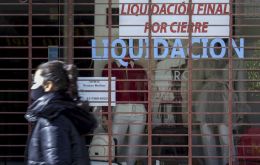
Economic activity in Argentina fell 1.2% monthly in April and accumulated three months of decline, according to data released Tuesday by the National Institute of Statistics and Census (INDEC).
-
Tuesday, June 29th 2021 - 09:20 UTC
Argentina falls down to worst place to be during pandemic according to Bloomberg ranking – US the best

The United States is now the best country to be during the coronavirus pandemic while Argentina is the worst option, according to a list of 53 nations reviewed by economy media outlet Bloomberg released Monday.
-
Monday, June 28th 2021 - 09:07 UTC
UK suspends one of the world's largest cryptocurrency platforms

The United Kingdom's Financial Conduct Authority (FCA) has issued a note dated June 25 announcing the suspension of Binance Markets Ltd and warned customers the platform was falling under tighter scrutiny worldwide.
-
Friday, June 25th 2021 - 17:45 UTC
Argentine shares on Wall Street plummet following MSCI downgrading
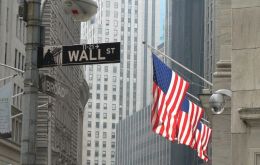
Friday dawned in Wall Street with the news that MSCI had decided to demote Argentina's economy two notches, from Emerging to Stand Alone and what Buenos Aires analysts feared by Thursday evening has become true.
-
Friday, June 25th 2021 - 16:09 UTC
Argentina downgraded to “independent market” in MSCI ratings

MSCI, formerly Morgan Stanley Capital International, a US company that measures stock performances worldwide to advise potential investors on their decisions, has removed Argentina from their various listings and added it to the dishonourable category of “stand-alone” economies.
-
Thursday, June 24th 2021 - 09:22 UTC
Uruguay's blooming economy shows covid-induced setback
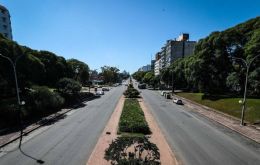
Uruguay's Gross Domestic Product (GDP) fell 2.8% in the first quarter of 2021 compared to the same period of 2020, according to a Central Bank (BCU) report released Wednesday.
